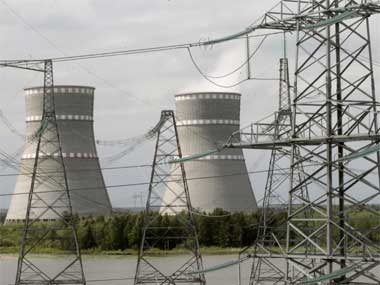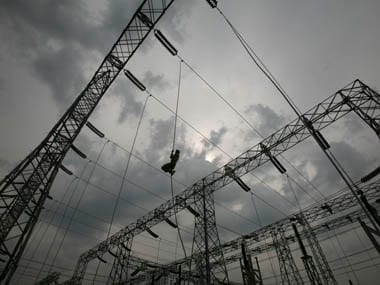Everyone wants to prepare an Energy Policy. But little evidence of HOW they will solve our Energy Challenges. [caption id=“attachment_1430417” align=“alignleft” width=“380”]  Representational Image. Reuters[/caption] Eight weeks ago AskHOW brought out an info-graphic highlighting the challenges in providing Electricity to India, in an efficient, affordable manner. We identified four major challenges – (i) Access; (ii) Supply; (iii) Efficiency; and (iv) Cost allocation and subsidy policy. Having analysed the manifestos through this framework, we find that the manifestos are quite similar in their lofty ideals, significantly influenced by the “coal scam”, but largely silent on the real issues (presumably left to be handled in their Energy Policies, to be drawn up only if they win). We highlight the key points in the respective manifestos, through the AskHOW framework, and let you draw your own conclusions, particularly on whether they have given you enough information to help you decide who to vote for. 1.Objective/Vision Most manifestos have gone further than the “Power for All” vision envisaged by AskHOW. Also, most have addressed “Energy” (i.e including oil & gas) as the broader set, which is a positive, but not a valid reason for ignoring the specific issues which are different for each energy source. - “The Indian National Congress will continue to enable the provision of clean, efficient and affordable energy for all” - BJP – “The overarching goal of energy security is to ensure affordable energy for various consumer segments”. Also, a “responsible and comprehensive National Energy Policy” - Others – the AAP does not set any vision for the power sector, which, one would argue, is an improvement over their vision for a free-power Delhi. The TMC envisages a “New Energy Policy”, with a target of “Electricity for All”. The DMK envisages a New Industrial Policy to increase basic infrastructure for electricity (among others) 2.Access - How can we provide Power to the villages of India at a faster pace? With more than 290 million people without access to electricity, India has the largest un-electrified population in the world. At current rate of rural electrification we can reach 100% (from 66%) only by 2023. In the meanwhile rural consumers bear a cost that is twice or more of urban consumers. - The INC promises to “work to ensure greater access to electricity. 100% access in urban from current 94%; and 90% access in rural areas from current 67.3%”. Also, to “work to improve the quality and unit consumption of electricity in rural areas” - BJP is a tad more specific, under different sections. Under “Rural areas”, it proposes the idea of Rurban (urban amenities in rural areas), and promises to “….improve village level infrastructure in terms of roads, potable water….electricity…”. Under Social Justice & Empowerment, BJP will initiate a “Van Bandhu Kalyan Yojna” at the national level to be overseen by a “Tribal Development Authority”. The scheme, among other things, will focus on “Electrification of tribal hamlets and provision of all-weather roads” - Others – The TMC claims “All villages of India will be electrified in a time bound manner” 3.Supply - How can we Supply more coal cheaply to Power plants ? Most Cities get 12-18 hours of Power. Generation capacity is still not sufficient. 10-20% deficit in most states, compared to 30% surplus as international norm. Fuel shortage is causing under utilisation of generation capacity. India has 3rd largest coal reserves; expected to become largest coal importer (i.e. higher cost). Solar, wind, nuclear will continue to contribute less than 10% of India’s power supply. Coal will increase from 66% in 2012 to 69% in 2017 AskHOW ignored the issue of methodology for allocation of coal mines to private developers, but that seems to be the topmost issue in the manifestos - INC: Resource allocation (which includes Coal mines), through a clearly defined Policy for fair, transparent, equitable and time bound development of natural resources. Set up Special Purpose Vehicle for judicious allocation of resources on the basis of usage and not arbitrarily, while striking a balance between present requirements and future demands. Independent regulator to monitor the process of natural resource allocation -BJP: “National policies on critical natural resources like coal, mineral, spectrum, spelling out how much should be utilised at what time and pace…strategically phased….who should be allotted what responsibility of extraction and at what cost. Auction..e-auction…resource mapping…” -Others: The AAP will ensure that commercial exploitation of natural resources would be done based on a royalty and revenue sharing agreement with local communities, to ensure that those who pay the cost of development, are also beneficiaries of this process. Greater role of Gram Sabhas in approvals The manifestos also show much higher degree of optimism with respect to renewable energy sources, while remaining largely silent on how more coal will be made available. -INC: On Energy sources, “new thrust to new and renewable energy, including hydel, solar and nuclear energy”. “Accelerate implementation of National Solar Mission”. “Launch of National Wind Energy Mission” -“BJP realises the need to focus on generation and distribution of power as a national security issue, so that the growth is not negatively impacted due to supply issues in the energy sector.” o Steps will be taken to avoid over-dependence on any one fuel and ensure supplier diversity (in context of energy, i.e including O&G) o Focus on development of energy infrastructure o Take steps to maximise the potential of oil, gas, hydel, ocean, wind, coal and nuclear sources. Energy efficiency and conservation crucial to energy security o Set up small hydro power generation projects o Steps to increase domestic coal exploration and production….will help to reduce import bill o Give a thrust to renewable sources of energy as an important component of India’s energy mix o Expand and strengthen the national solar mission -Others: The AAP “will ensure phased shift towards renewable sources of energy; promote decentralised renewable energy solutions, such as Solar power, biogas plants, watermills, and wind pumps, to reduce infrastructure and maintenance costs and encourage local ownership”. The TN parties are the only ones talking about Transmission infrastructure, understandably so since the coal reserves are located far away o DMK - Distribute power generated in States through Central power projects for sole use of respective States. Creation of grids linking all States to easily transmit excess power from one state to another power deficit state o AIADMK - Take steps to establish new power corridors. Strengthen existing corridors to enable the transmission of power from surplus States to deficit States [caption id=“attachment_1321433” align=“alignleft” width=“380”]  Representational Image. Reuters[/caption] 4. How can we reduce inefficiencies? Cost of Power supply is high due to several inefficiencies. Monopoly transporter, Indian Railways, already subsidises coal transport – can it continue to do so as volume increases? Monopoly supplier, Coal India, is not producing fast enough; which is causing more imports. 25% generation capacity in major states is over 30 years old – these need high maintenance, more fuel and produce less power. High engineering losses and theft of power in transmission and distribution of electricity There is practically no discussion on improving efficiency to better utilise existing assets, hence reducing cost of supply. Sure, much of this (not all) is in the purview of respective State Governments, but the Govt of India has been incentivising States through the Accelerated Power Distribution Reform Program (APDRP). Presumably, the silence implies continuation of the existing approach. Is the current approach adequate to achieve the vision of “affordable power”, remains another unanswered question. -INC: “will effectively implement the National Mission on Energy Efficiency”. Also, presumably, the coal mine allocation process mentioned above, will bring private sector efficiencies into coal mining. -BJP: Under agriculture, mentions “introduce and promote low water consuming irrigation techniques and optimum utilisation of water resources”. If implemented, this will also reduce wasteful electricity consumption in the agriculture sector, though that is not explicitly a benefit mentioned in the manifesto 5. How can we reduce tariffs without lowering investments in education and healthcare ? Agricultural tariff almost free; domestic tariff below cost for most; industry pays 30% above cost. High cost to industry causes use of diesel gensets, making distribution companies poorer. State governments have promised subsidies but not paid nearly 45%. The manifestos are completely silent on the issue of Tariffs. One is tempted to conclude that the silence is an indication of de-politicisation of power tariffs; but power tariffs are typically State election issues, so it may be too early to celebrate. Let’s just conclude with recognising that the word “affordable” in the visions of each manifesto is best left . Analysis of what different political parties are saying on power for all (24 hour affordable supply for all Indians)
Power Manifestos Tabular Power Manifestos Tabular AskHOWIndiaLet’s just conclude with recognising that the word “affordable” in the visions of each manifesto is best left .
Advertisement
End of Article
Written by FP Archives
see more


)
)
)
)
)
)
)
)
)



